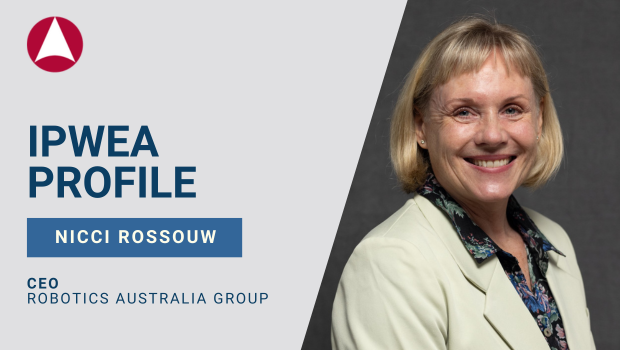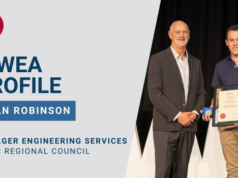The first Robotics Roadmap for Australia was published in 2018 and it put Australian industry revenue at $12 billion, and by the time the roadmap was republished in 2022 that figure had grown to $18 billion.
Nicci Rossouw, the chief executive of Robotics Australia, says that while this comparison indicates positive growth more can still be done to foster an industry which “will soon touch every aspect of our lives.”
In the roadmap, Robotics Australia points out that while the world average robot population density is 113 for ever 10,000 employees, in Australia that figure is only 75.
“The world’s number one country in terms of robot population density is Singapore, with 918 robots per 10,000 employees,” says Nicci Rossouw.
“Our industry has momentum and that is exciting, but in some ways we are being left behind.”
Founded in 2020, the Robotics Australia Group (RAG) – through its Robotics Australia Network – brings together a community of more than 800 people from industry, government, and research institutions.
With the help of corporate sponsors Laing O’Rourke, Advanced Navigation, RSM Australia and VEX robotics, its mission is to foster an active eco-system comprising start-ups, scale-ups and more mature companies in addition to promoting the use of robots through all industry sectors.
RAG also has international links through its membership of the International Association of Robotics Associations, the Urban Robotics Foundation and how-to-robot.
“Our industry is immature, which is fair enough because robotics is an emerging technology,” says Rossouw.
“But we’ve identified that the industry is fragmented, so the role an industry association can play is to be a peak body representing everybody’s interests and bring academia, government and industry together.”
Rossouw’s background was in IT and project management and she came to robotics through direct experience, using a telepresence robot in her consulting business.
From there, she became an importer of the robots and then joined the RAG board before becoming chief executive.
While excited about the growth of the local industry Rossouw is also quick to point out how Australia compares globally, and that it ranks 28th out of 38 countries in the world in terms of robot adoption.
“You need to keep in mind that Australia is behind in terms of manufacturing industry, but what we really excel at is field robotics, mining a great example, as we are leaders in using autonomous vehicles in that industry,” she says.
“Our eco-system is maturing, and I think we hold our own anywhere in the world with technology but the biggest issue we have is funding through the venture capital industry.”
Rossouw points to several world leading Australian robotics companies such as Perth based builder FBR, which has developed its “Wall as a Service” robotic building technology which automates construction through a system called Hadrian X.
“They can build a house in a day with Hadrian X once the slab is in place,” she says.
Other applications are in using drones for the inspection of remote infrastructure, or in precision farming applications where they can perform tasks such as planting and seeding.
While many drones are imported there was a major opportunity in software development which could see new and innovative drone applications.
Australia, said Rossouw, has around 2500 registered drone companies and their use is “exploding.”
“I was talking to one of our network members and he was talking about the use of drones at the 2032 Brisbane Olympics,” she said.
“We could have assisted aerial vehicles which would pick up people and drop them off like mini-helicopters.
“This is not science fiction, we are creating this incredible future for ourselves.”
Another growth area is “urban robots” which will share Australian footpaths and deliver everything from food to medical supplies.
“We are not just talking about the delivery of pizzas,” says Rossouw.
“They could be delivering medicine and doing really valuable life saving work.
“This isn’t something which has been deployed in Australia yet but it is coming. In a few years this will be integrated into our daily lives.”
Nicci Rossouw will be a guest speaker at the IPWEA International Public Works Conference to be held in Melbourne from 30 April to 3 May. The conference theme is Adaptation: Thriving in a New World.














